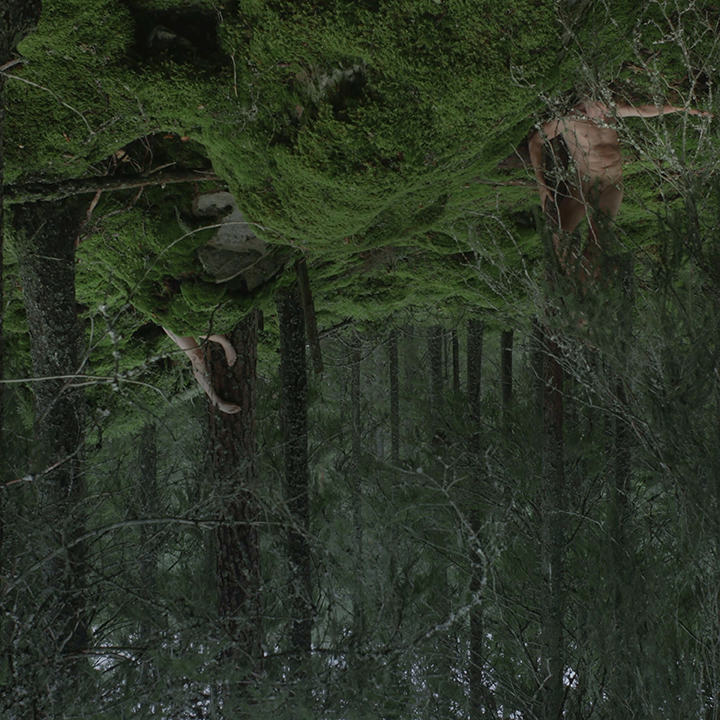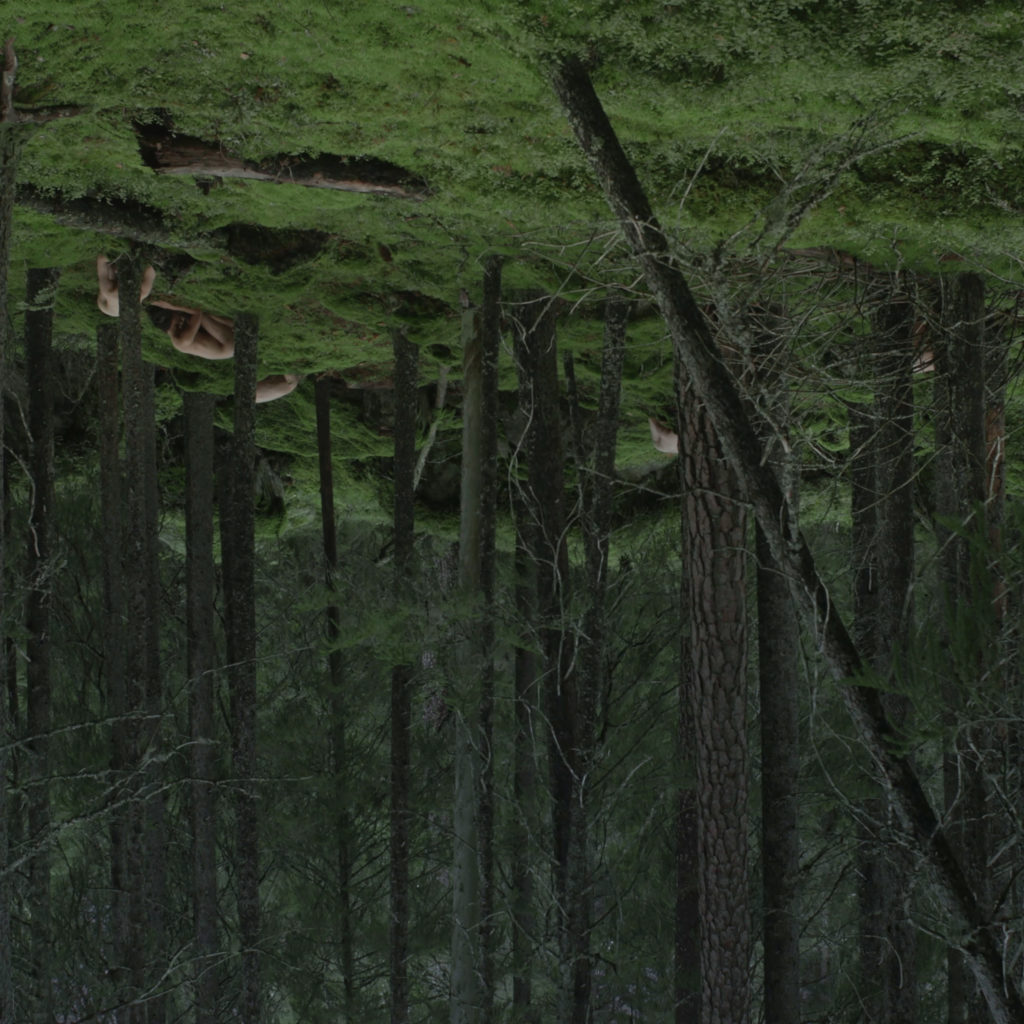Zheng Bo (CN)
Le Sacre du printemps (Tandvärkstallen)
Video (4K, color, sound), 16 min., 2021-22.

Video still from Le Sacre du printemps (Tandvärkstallen), courtesy the artist and Kiang Malingue
Zheng Bo is committed to all-inclusive, multi-species relationships. Through a socially and ecologically engaged art practice, he forges an alternative path that de-emphasises a human-centric worldview and strives instead for interconnectedness between all living beings. He has devoted himself to the study of plants, learning from biology and botany experts while creating art and daily rituals that focus on interspecies care. He makes performance and video art, community workshops, and drawings, in which he pushes standard notions of human-plant coexistence, allowing for imaginative thinking to lead towards what he conceives as a posthuman vibrancy. In his ongoing video and performance series Pteridophilia, which began in 2016, the artist explores the erotic possibilities between plants – specifically ferns – and queer men. Sex occurs in many ways in the works, provocatively moving past the mere sensuous and into climactic acts of pleasure. The eco-sexual curiosities of Pteridophilia were further developed in a film and dance piece, Le Sacre du printemps (Tandvärkstallen), in which Zheng collaborated with five Nordic male dancers in a forest in Dalarna, Sweden. The troupe cultivated relationships beyond the fern, feeding the collective sexual desires of the pine trees, moss, and one another through touch and movement.
(Text by Isabella Achenbach for Venice Biennale)
Zheng Bo is learning how to live a good life on planet Earth, a life that is ecologically just, vibrant and beautiful. Plants are his teachers: ferns in Taiwan, mosses in Scandinavia, grass trees in Western Australia, date palms in the Arabian Peninsula. In recent years his practice has received support from institutions such as The Huntington, Göteborgs Konsthall, Gropius Bau, Jameel Arts Centre, and Kyoto City University of Arts Art Gallery. In return, he has nudged these institutions to move beyond an anthropocentric conception of art.

Video still from Le Sacre du printemps (Tandvärkstallen), courtesy the artist and Kiang Malingue
Džen Bo
Le Sacre du printemps (Tandvärkstallen)
4K video 16 min, 2021–2022
Džen Bo ir apņēmies veidot iekļaujošas un daudzveidīgas attiecības. Ar sociāli un ekoloģiski iesaistītu mākslas praksi viņš veido alternatīvu ceļu, kas mazina cilvēkcentrētu pasaules uzskatu un tā vietā tiecas izcelt visu dzīvo būtņu savstarpējo saistību. Viņš pievērsies augu pētniecībai, mācoties no bioloģijas un botānikas ekspertiem, vienlaikus radot mākslu un ikdienas rituālus, kas vērsti uz starpsugu rūpēm. Viņš veido performances un video darbus, kopienas darbnīcas un zīmējumus, kuros izaicina tradicionālās cilvēka un auga līdzpastāvēšanas koncepcijas, ļaujot iztēlei virzīt domāšanu uz to, ko viņš uzskata par posthumānu vitalitāti.
Savā video un performanču sērijā Pteridophilia, kas uzsākta 2016. gadā, mākslinieks pēta erotiskās iespējas starp augiem — konkrēti papardēm — un kvīru vīriešiem. Darbos sekss izpaužas dažādos veidos, provokatīvi pārsniedzot vienkāršu jutekliskumu un virzoties uz kulminācijas brīža baudas izpausmēm. Ekoseksuālās ziņkārības, kas izpaudās Pteridophilia, tika tālāk attīstītas filmā un dejas izrādē Le Sacre du printemps (Tandvärkstallen), kurā mākslinieks sadarbojās ar pieciem Ziemeļvalstu vīriešu dejotājiem Dalarna mežā Zviedrijā. Caur pieskārieniem un kustību trupa veidoja attiecības ne tikai ar papardēm, stiprinot priežu, sūnu un viens otra kolektīvās seksuālās vēlmes.
Teksts: Izabella Ahēnbaha (Isabella Achenbach) Venēcijas biennālei